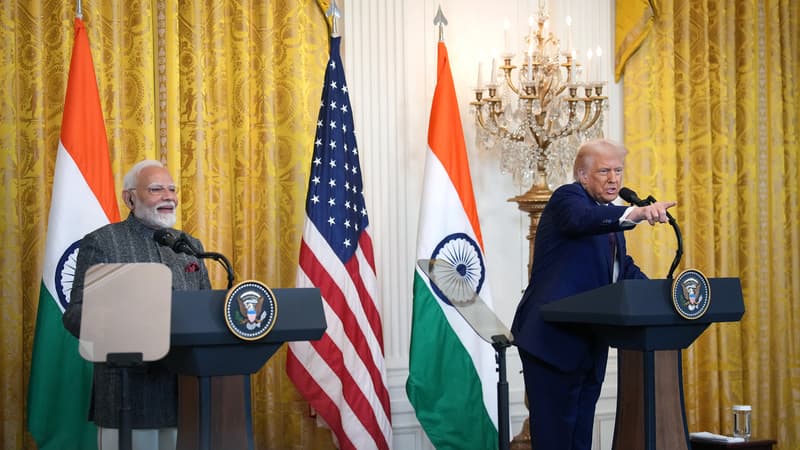From McDonald’s to Coca-Cola through Amazon and Apple, US multinationals face boycott calls in India, orchestrated by supporters of Prime Minister Narendra Modi, in reaction to US customs tasks. Donald Trump has pointed to India with 50%customs customs, one of the highest rates imposed on a commercial partner in the United States, which strongly penalizes local businesses.
This decision marks a new escalation in the dispute between the US president and the Narendra Modi government since the failure of five series of bilateral commercial conversations, New Delhi resistant to Washington requests to open his market to American agricultural and dairy products and refuses to reduce his purchases of Russian oil.
On Sunday, Narendra Modified launched a “special call” for self -sufficiency, declaring during a Bangalore meeting that Indian technological companies made products for everyone, but that “the moment has come to give us a higher priority to the needs of India.” He has not mentioned any business.
Support the “fact in India”
In social and online networks, boycott calls for US brands present in India have multiplied. Manish Chowdhary, co -founder of the Indian company Wow Skin Science, published on LinkedIn a video call to support farmers and new companies to make the “fact in India” (“made in India”) a “global obsession”, inspired by South Korea, whose food and cosmetics are renamed everyone. He regretted that the Indians proudly buy foreign products, while their local manufacturers are struggling to stand out.
The Swadesh Jagran Manchn Group, near the political formation of Bharatiya Janata in Narendra Modi, organized small public demonstrations on Sunday throughout India, asking the population to boycott US brands.
In social networks, one of the group’s campaigns is a graphic entitled “Boicot of foreign food chains”, with McDonald’s logos and many other restaurant restaurants.
India, a strategic market for the United States
India, the most populous country in the world, is a key market for US brands, which have developed rapidly to aim at a growing basis of rich consumers, many of which remain fascinated by international brands, perceived as symbols of social ascent.
In Lucknow, in the state of Uttar Pradesh located in the north of the country, Rajat Gupta, 37, had dinner on Monday at a McDonald’s restaurant, appreciating his coffee with 49 rupees (0.48 euros). “Customs duties are from diplomacy and my McPuff and my coffee should not be involved,” he said.
India, for example, is the largest market in number of users for the messaging of Meta, and Domino’s has more restaurants than any other channel. Drinks such as Pepsi and Coca-Cola often dominate store stores, while the tails are formed as soon as a new Apple store or when a Starbucks coffee offers discounts.
McDonald’s, Coca-Cola, Amazon and Apple did not immediately respond to Reuters comments.
Despite the protests against customs duties, the American car manufacturer Tesla inaugurated a second sales area in New Delhi on Monday, in the presence of numerous officials of the Ministry of Commerce of India and the United States embassy.
Source: BFM TV


